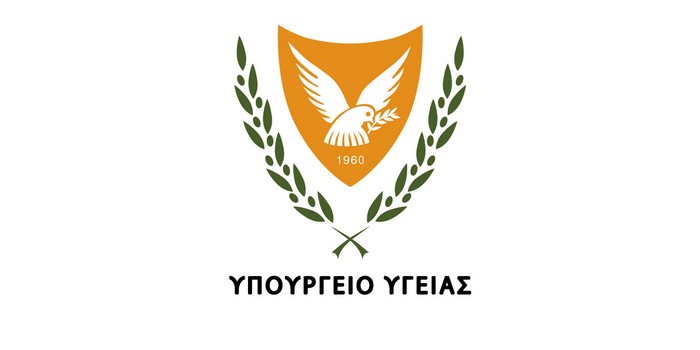Press Releases

14-07-2020 09:10
Epidemiological risk assessment of countries in respect of the COVID-19 disease, dated 14/07/2020
The epidemiological image of various countries with regard to the COVID-19 disease has been re-evaluated by the Epidemiological Monitoring and Control of Infectious Diseases Unit of the Medical Services and the Public Health Services. The evaluation was based on the epidemiological indicators of the countries, such as: the effective reproduction number R(t) for SARS-CoV-2, the number of new diagnoses, the number of laboratory tests, the mortality rate per 100,000 inhabitants, the estimated prevalence and the impact and classification by the World Health Organization (WHO), as these indicators appear on valid data bases.
The following categorization of countries, based on the epidemiological risk assessment, is extremely dynamic and may be modified at any moment, as the pandemic evolves and the epidemiological data change. For this reason, new data would be announced and the list of countries updated frequently.
It should be noted that in categorizing countries the recommendation of the European Council, dated 30 June, on the gradual and coordinated lifting of travel restrictions to the European Union has been taken into consideration.
Category A – Low risk countries at the present stage
European Union Member States: 1) Austria, 2) Germany, 3) Denmark, 4) Greece, 5) Estonia, 6) Ireland, 7) Latvia, 8) Lithuania, 9) Malta, 10) Hungary, 11) Poland, 12) Slovakia, 13) Slovenia, 14) Finland
Schengen Area Members: 1) Switzerland, 2) Iceland, 3) Lichtenstein, 4) Norway
Third Countries: 1) Japan, 2) Canada, 3) New Zealand, 4) South Korea
Included in this category are countries with an effective reproduction (Rt) number lower than 1 or/and small number of new diagnoses (<1/100,000 inhabitants per day) or/and small or very small COVID-19 mortality (<5-10/100,000 inhabitants) or/and classification of sporadic cases or clusters of cases according to the WHO or/and at least satisfactory laboratory testing (>3000 tests/100,000 inhabitants).
It should be noted that passengers coming from Category A countries do not have to present a laboratory COVID-19 test certificate or go into self-isolation.
Category B - Countries with possibly low risk but greater uncertainty compared to Category A
European Union Member States: 1) Belgium, 2) Bulgaria, 3) France, 4) Spain, 5) Italy, 6) Croatia, 7) Luxembourg, 8) Netherlands, 9) Romania, 10) Czech Republic
Small States: 1) Andorra, 2) Monaco, 3) Vatican City, 4) San Marino
Third Countries: 1) Georgia, 2) Uruguay, 3) Australia
Included in this category are countries with an effective reproduction (Rt) number greater than 1 or/and number of new diagnoses <1/100,000 inhabitants per day or/and increased COVID-19 mortality (>10/100,000 inhabitants) or/and limited laboratory testing (<2000 tests/100,000 inhabitants) or lack of WHO classification.
It should be noted that passengers coming from Category B countries will be required to have undertaken a laboratory test at least 72 hours prior to departure and to possess a Certificate showing negative PCR examination for the virus.
It is clarified that passengers from Category B countries falling into the following categories may carry out the molecular examination upon arrival in the Republic: a) Cypriot citizens permanently residing in the Republic, their alien spouses and under-age children, b) all who reside legally in the Republic. It should be noted that the examination cost will be borne by themselves and in addition such persons should remain in self-isolation at home until the examination result is issued.
Category C – Increased risk countries compared to categories A and B
- European Union Member States: 1) Portugal, 2) Sweden
- United Kingdom
- Third Countries: Serbia
In accordance with the Infectious Diseases Decree (No.30) of 2020 (https://www.pio.gov.cy/coronavirus/diat/50.pdf) the entry into the Republic from Category C countries shall be allowed only for specific categories of citizens who have the possibility to choose whether to undergo a diagnostic test for the COVID-19 disease upon their arrival in Cyprus or have on them a negative RT-PCR test certificate for COVID-19 undertaken at least 72 hours prior to departure. It must be noted that such persons shall have to remain in a state of self-isolation for 14 days. Relevant sanitary instruction may be obtained by following the link: https://www.pio.gov.cy/coronavirus/info.html.
It must be stressed that all passengers regardless of country category shall be obliged to file an application for the CyprusFlightPass(https://cyprusflightpass.gov.cy/) within 24 hours prior to their flight departure. Moreover, in order to insure public health and the monitoring of the epidemiological picture, a sample molecular laboratory testing of passengers on selected arriving flights would be taking place.
It should be noted that the above categorization of countries shall take effect on 16 July.
( DC )
Relevant Press Releases





08-01-2024 11:39
Curriculum vitae of the new Minister of Health, Mr Michael Damianos


